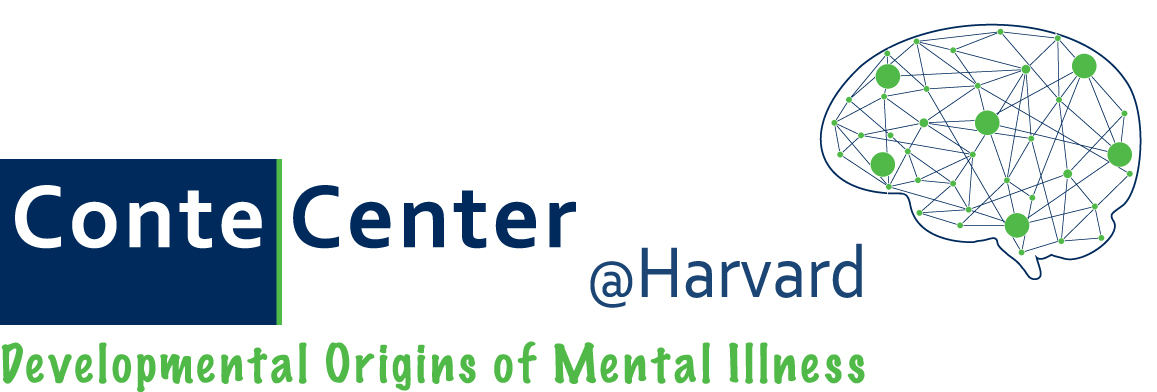Catherine Dulac, PhD
Higgins Professor of Molecular and Cellular Biology
Howard Hughes Medical Institute Investigator
dulac@fas.harvard.edu
Our group is interested in the cellular and molecular architecture of neural circuits underlying social behaviors. In one major line of research, we are studying the circuits responsible for pheromone signaling in mammals. In another set of projects, we are exploring the role of genomic imprinting in brain development and function.
Genomic imprinting is a phenomenon in which genes are expressed in a parent-of-origin specific manner, due to epigenetic modifications. We have recently used a genome-wide approach to characterize the repertoire of imprinted genes in the mouse embryonic and adult central nervous system. Our study uncovered over 1000 new loci with imprinted features in the mouse brain, suggesting that imprinting is a major mode of epigenetic regulation in the brain.
Imprinting appears to preferentially affect neural systems associated with social, motivational and homeostatic brain functions. Comparison of the imprinted gene repertoire in the adult hypothalamus and cortex, and in the developing brain, demonstrates a complex spatiotemporal, species-, sex- and isoform-specific regulation. Genomic imprinting thus emerges as a major and dynamic mode of epigenetic regulation of brain function, with direct implications for the understanding of evolution and diseases.
As part of the Conte Center, we are interested in understanding what role the dysregulation of genomic imprinting plays in psychiatric disorders. To that end we are investigating cell-specific imprinting during cortical development, focusing on a population of inhibitory interneurons believed to be particularly vulnerable in disorders such as autism and schizophrenia. By comparing the “imprintome” of these neurons in healthy mice with that in models of mental illness or early life stress—and collecting data at time points both before and after critical periods in cortical development—we hope to identify signature changes in the expression patterns of imprinted genes that may be associated with the pathology of psychiatric disorders. Also, by studying the sex-specific regulation of genomic imprinting, we hope to shed light on biological mechanisms underlying gender differences in mental illness.
About Professor Dulac
Catherine Dulac is a Howard Hughes Medical Institute Investigator, Higgins Professor of Molecular and Cellular Biology, and Chair of the Department of Molecular and Cellular Biology in the Faculty of Arts & Sciences at Harvard University. Her work explores the molecular biology of pheromone detection and signaling in mammals, and the neural mechanisms underlying age-, species-and sex-specific behaviors. She graduated from the Ecole Normale Supérieure, Paris, she received her PhD from the University of Paris VI at the Institute of Molecular and Cellular Embryology (Nogent-sur-Marne), and was a postdoctoral fellow at Columbia University. She is a Fellow of the American Academy of Arts and Sciences, of the American Association for the Advancement of Science, she is a member of the French Academy of Sciences, Institute of France and a Chevalier de la Legion d’Honneur. She is a recipient of the Liliane Bettencourt Prize, the Richard Lounsbery Award, the Perl/UNC Neuroscience Prize and the IPSEN Foundation Neuronal Plasticity prize.
Recent Publications
Neural control of maternal and paternal behaviors.
Dulac C, O'Connell LA, Wu Z. Science. 2014 Aug 15;345(6198):765-70. doi: 10.1126/science.1253291. Epub 2014 Aug 14. Review. PMID: 25124430
Mapping ecologically relevant social behaviours by gene knockout in wild mice.
Chalfin L, Dayan M, Levy DR, Austad SN, Miller RA, Iraqi FA, Dulac C, Kimchi T. Nat Commun. 2014 Aug 5;5:4569. doi: 10.1038/ncomms5569. PMID: 25090970
Sex-specific processing of social cues in the medial amygdala.
Bergan JF, Ben-Shaul Y, Dulac C. Elife. 2014 Jun 3;3:e02743. doi: 10.7554/eLife.02743. PMID: 24894465
Galanin neurons in the medial preoptic area govern parental behaviour.
Wu Z, Autry AE, Bergan JF, Watabe-Uchida M, Dulac CG. Nature. 2014 May 15;509(7500):325-30. doi: 10.1038/nature13307. PMID: 24828191
The activity-dependent histone variant H2BE modulates the life span of olfactory neurons.
Santoro SW, Dulac C. Elife. 2012 Dec 13;1:e00070. doi: 10.7554/eLife.00070. PMID: 23240083
Molecular organization of vomeronasal chemoreception. (2011)
Isogai Y, Si S, Pont-Lezica L, Tan T, Kapoor V, Murthy VN, Dulac C. Nature. 478(7368):241-5.
Superresolution imaging of chemical synapses in the brain. (2010)
Dani A, Huang B, Bergan J, Dulac C, Zhuang X. Neuron. 68(5):843-56.
Sex-specific parent-of-origin allelic expression in the mouse brain. (2010)
Gregg C, Zhang J, Butler JE, Haig D, Dulac C. Science. 329(5992):682-5.
High-resolution analysis of parent-of-origin allelic expression in the mouse brain. (2010)
Gregg C, Zhang J, Weissbourd B, Luo S, Schroth GP, Haig D, Dulac C. Science. 329(5992):643-8.
Brain function and chromatin plasticity. (2010)
Dulac C. Nature. 465(7299):728-35.
In the News
Charlie Rose Brain Series: The Biology of Parenting
May 2015 Show featuring Eric Kandel of Columbia University, Catherine Dulac of Harvard University, Susanne Shultz of the University of Manchester, Charles Nelson of Harvard Medical School, Margaret Spinelli of Columbia University, and pediatrician David Levine.
Brain circuits may control parental behavior
2014 Boston Globe Article by Carolyn Y. Johnson
Parental controls: Neural drivers identified in research in mice
2014 Harvard Gazette Article by Peter Reuell
Passing the sniff test
2012 Howard Hughes Medical Institute “Up Close” profile
Vive la différence: an interview with Catherine Dulac.
2011 PLoS Genetics interview by Jane Gitschier
Rival, Predator, Mate: Mapping the Molecules that Detect Chemical Cues
2011 Howard Hughes Medical Institute Research News
Animal Scents
2011 Harvard Gazette article
Video Resource
Molecular Biology of Pheromone Sensing: from Genes to Behavior
2005 Harvard Life Sciences/HHMI Outreach video

